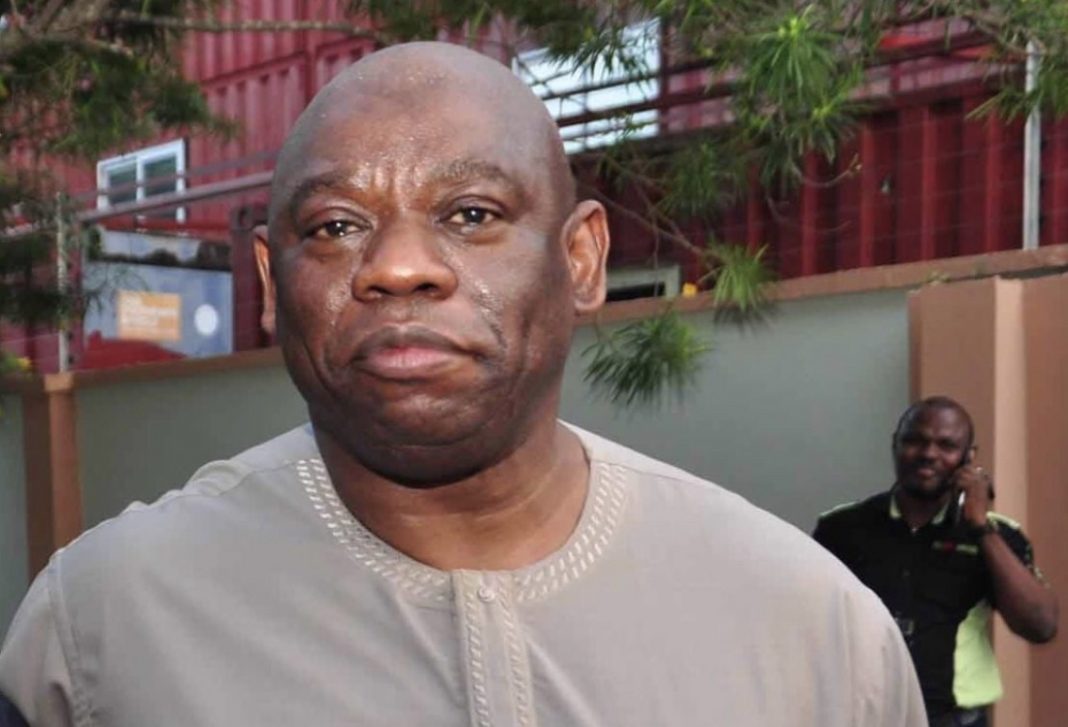LAGOS, Nigeria — Kola Abiola, son of the late Chief M.K.O. Abiola, has described President Bola Tinubu’s recent Democracy Day honours as a “commendable first step” but pressed for a more inclusive recognition of those who sacrificed during Nigeria’s pro-democracy struggle.
In an interview with ARISE News to mark Democracy Day, Kola Abiola welcomed Tinubu’s decision to posthumously honour key figures such as General Shehu Musa Yar’Adua, Professor Wole Soyinka, Professor Humphrey Nwosu, and Kudirat Abiola — the slain wife of M.K.O. Abiola — but questioned the omission of several critical actors.
“I think he’s done well by taking the first step by recognising specific names. As to what criteria or what justification for some, I’m sure they know best,” Abiola said.
He pointed specifically to the absence of individuals like Bello Buhari from the list of honourees.
“Someone like that definitely should have been included. That’s why I said I’m not sure of the criteria they use or their understanding of events. But someone like that cannot be left out, for example. So many other names in there, but it’s done, it’s done,” he said.
Abiola also referenced his own role during the June 12 crisis, citing personal ordeals that included raids on his residence and months of detention.
“There are some names that should have at least been on that list irrespective of your political affiliation. Someone like me, for example. I was deeply involved in the pre and the post-election,” he said.
“My house was raided by security forces looking for me. But for my late daughter I don’t know where I would have been today. I was in detention for four and a half, five months.”
Although 12 June is now a national holiday commemorating the annulled 1993 presidential election, which M.K.O. Abiola is widely believed to have won, Kola Abiola said symbolic gestures alone are insufficient.
He renewed the family’s call for the settlement of a ₦45 billion claim owed to the Abiola family, which he described as a matter of long-standing injustice.
Beyond personal redress, Abiola lamented Nigeria’s inability to preserve the democratic ideals that June 12 once embodied.
He expressed concern that the lessons of that era have not been absorbed, especially by a younger generation that lacks historical context.
“Look, how do you go from what is actually the best election in Nigeria, the 1993 election, to what we have today?” he asked.
“Even the then-president, Babangida, if there’s one thing he did right, it was to make sure we conducted a very good election. It was violence-free. People were dancing in the streets.”
By contrast, he said recent elections have been plagued by division, insecurity, and public mistrust.
“We’re now divided ethnically and religiously. Neighbours are fighting each other. There’s total insecurity around elections and campaigns because everybody feels sidelined and is taking the law into their own hands,” he said.
Abiola further observed that most Nigerians, including many in his own generation, have limited awareness of the June 12 struggle.
“Sixty-five percent of our population don’t even remember what happened back then. Even among MKO’s kids, 65% of us were 10 years old or younger at the time. Let alone today’s youth, how would they understand the implications of that election?”
Responding to critics who downplay the democratic credentials of the June 12 movement, Abiola recounted a private exchange with the late General Shehu Musa Yar’Adua during discussions around a proposed interim government.
“When the interim government discussion came, I sat with him and asked, ‘Sir, what do we do next?’ He said, ‘Whatever we do, let’s make sure they (the military) go.’”
According to Abiola, the June 12 struggle was always about ending military rule — even if it meant navigating within the confines of military-imposed processes.
“They (the military) were the judge and jury. But if that’s how they wanted to play it — so be it. Let us just get them out of the room. And it doesn’t come any more credible or valid than that.”
As the Tinubu administration seeks to embed the memory of June 12 into national consciousness, Kola Abiola urged against politicising the legacy.
Instead, he called for meaningful action that ensures such a democratic reversal never happens again.
“People need to understand and own this thing so we prevent it from happening again,” he said.







![Honouring a Rare Soul: Celebrating the Life of AVM Terry Omatsola Okorodudu [MUST READ] Air Vice Marshal Terry Omatsola Okorodudu](https://www.thetrentonline.com/wp-content/uploads/2026/01/Joan-and-Bidemi-Okorodudu-The-Trent-100x70.jpg)